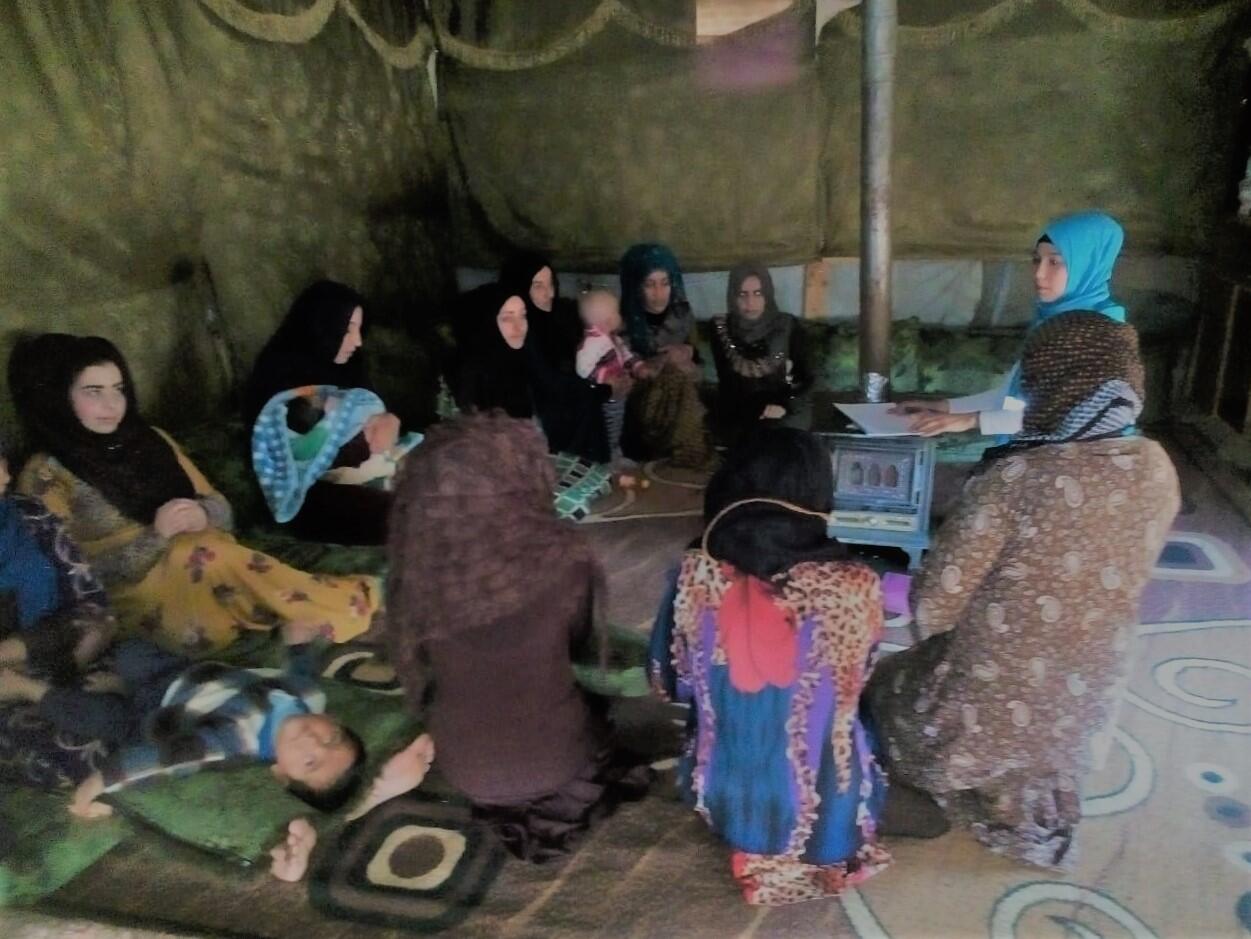In a small office in South Lebanon, Rawan sits in a corner by a desk, shy and reserved. The eighteen-year-old seems eager to tell her story but is timid at the same time. She fled the war in Syria with her family in 2012, at the height of the fighting. Hailing from Daraa, she had dreams of becoming a nurse, intent on staying in school and finishing her studies so she could attend university.
But following the Syrian refugee crisis, the large influx placed enormous pressure on Lebanon, especially on vulnerable areas where refugee concentrations are greatest. Increasing economic pressure coupled with poor living conditions and inter-cultural tensions resulted in increasing numbers of cases of sexual and gender-based violence, particularly early marriage within both Lebanese and displaced communities. When Rawan was 14, her older sister got married, and her husband’s brother decided he wanted to get married too. Rawan was the obvious choice in the family.
“It was the kind of situation where the family would automatically take the sister as well once one is married,” she explains.
Her father agreed to the proposal, despite Rawan’s pleas. She knew she was too young and would have to drop out of school, but there was nothing she could do. Meanwhile, she had been introduced to the peer-to-peer sessions on early marriage provided by UNFPA and its partner, INTERSOS, in the South. Drawn to the young girls and the discussions, Rawan began attending the sessions and hoped to become a peer educator herself, her father’s objections notwithstanding. She eventually did.
“The program really helped; I learned so much about the dangers of early marriage, and I told my father I didn’t want to get married any time soon, not until I’m ready,” Rawan added. “The program provides young girls with a lot of confidence. It taught me everything about girls and women.”
Rawan argued her way into convincing her father to call off the wedding, and is hoping to help other young girls and their parents understand the dangers of child marriage. Since become a peer educator, she met so many young girls who didn’t want to be married early, but most of their parents do.
While she’s been unable to pursue her nursing studies because of the high cost, she still graduated high school and is currently studying accounting at an institute nearby. Becoming a peer educator means she is making her own money and doesn’t have to rely solely on her father to pay her tuition, which provides her with independence, something she is grateful for.
UNFPA and its partners are working on promoting legislation and programmes designed to end child marriage. UNFPA also supports evidence-based, girl-centred investments that empower girls with the information, skills and services they need to be healthy, educated and safe, helping them make a successful transition to adulthood. In 2018, UNFPA reached out to over 26,700 adolescent girls through awareness sessions on gender-based violence and sexual and reproductive health, operating in 292 locations across Lebanon and engaging around 165 community leaders.


